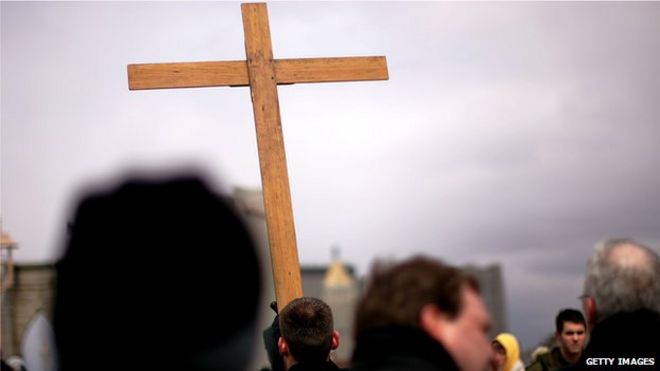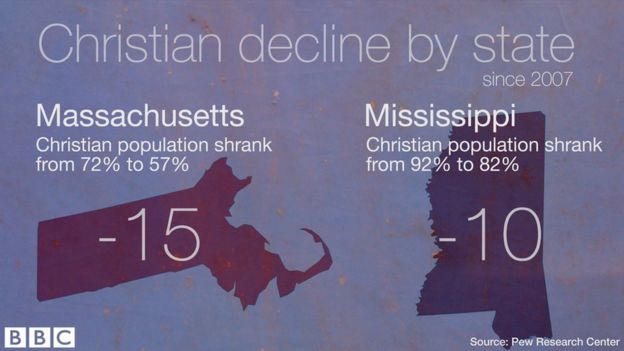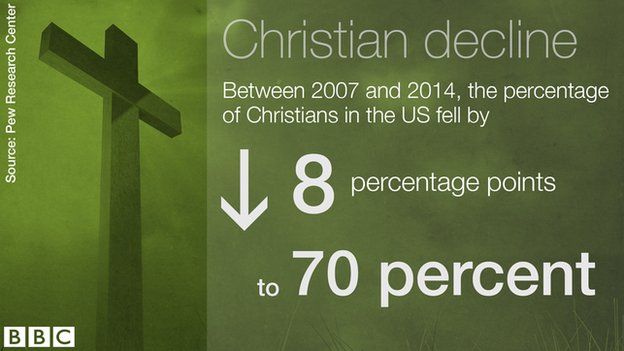- 26 May 2015
- Education & Family
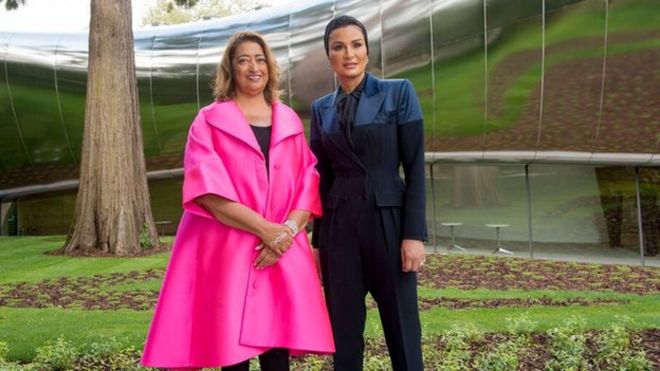
A senior member of the Qatar royal family has warned that Muslims are being "dehumanised" by the coverage of violent extremism in the Middle East.
"Why do Muslim lives seem to matter less than the lives of others?" asked Sheikha Moza bint Nasser in a speech at Oxford University on Tuesday.
The division between East and West was creating a "fear and suspicion of all things Islamic", she said.
Sheikha Moza also warned against "violent repression" in the Arab world.
Widely seen as one of the most influential women in the Middle East, Sheikha Moza warned an audience at Oxford University of the dangers of negative stereotypes in the West.
And the failure of progressive politics in the Middle East was fuelling "distorted and perverted" interpretations of Islam, she added.
'Muslim-phobia'
Speaking at the opening of a new building at the Middle East Centre at St Antony's College, Sheikha Moza warned that while there was an "intellectual curiosity" in the West about Islamic culture, individual "real, living Muslims" faced growing distrust.
She described this as being "Muslim-phobia", as distinct from claims of "Islamophobia".
And she questioned whether globalisation was really achieving more "pluralistic" societies.
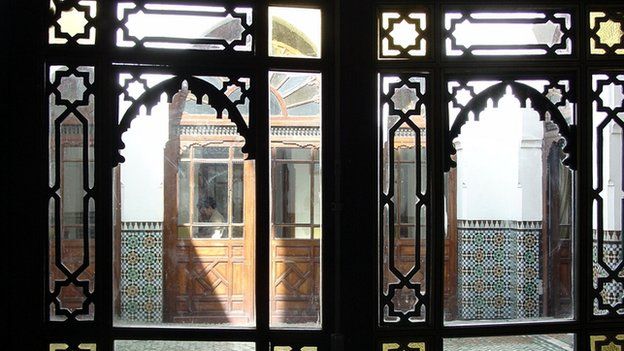
"A Muslim is first and foremost identified as a Muslim, rather than simply a human being.
"Whether they are Pakistani, Malaysian, Senegalese, or even British born, their multiple identities are levelled under a constructed monolith of Islam," she said.
This collective identity was seen as something "fearful and unknowable", said Sheikha Moza, mother of the current emir of Qatar and wife of the previous ruler.
The consequence was "double standards" in the reaction to the casualties of conflict, said Sheikha Moza, a senior political figure in the oil and gas-rich Gulf state.
"Only silence follows when innocent Yemeni and Pakistani children and civilians," are killed by drones, she said.
She challenged the increasing use of the word "medieval" to describe the actions of radicals in the Middle East.
"Global media, both Western and Arab, often claim that Islam does not believe in freedom of expression and is stuck in medieval times," said Sheikha Moza.
'Isis is as modern as Guantanamo'
But she said it was a failure of "our collective responsibility" not to admit that the violence of groups such as the so-called Islamic State were the result of our own modern era.
"[IS] is as modern as Guantanamo and Abu Ghraib. They are all products of our age."
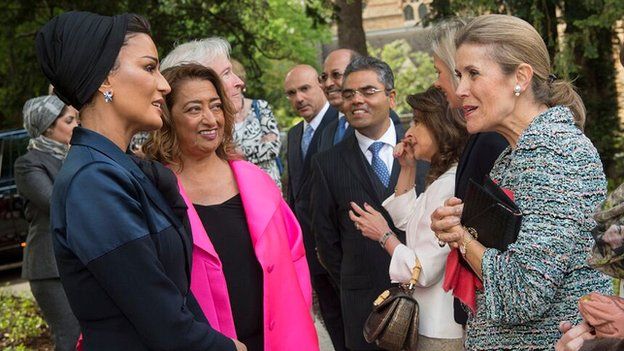
But she also challenged the political culture in Muslim countries that had produced radical militants whose interpretation of Islam is "nothing more than a violent political slogan".
The wave of upheavals of the Arab Spring had "planted the seeds of freedom", but she said these ideals had been "crushed underfoot" and such "dreams might find another, more aggressive channel of expression".
"This is the price we are paying today for our lack of courage when it mattered. Every act has a consequence but so does every inaction.
"Activism can quickly change to militancy when there is no recourse to democratic change."
She argued that such a failure to dismantle violent autocracies in the Middle East could be a reason why Muslims have "lost confidence" in being able to apply positive, peaceful Islamic traditions.
The Gulf state has itself faced criticism over the working and living conditions of migrant workers on construction projects for the 2022 World Cup.
Sheikha Moza told her audience that young Muslims needed to be able find a "new modernity" showing their religion as a "rich, living moral tradition".
